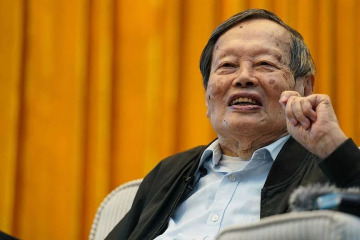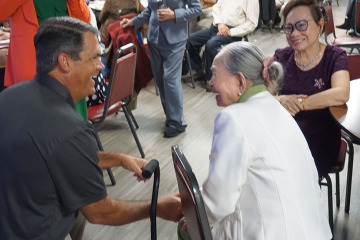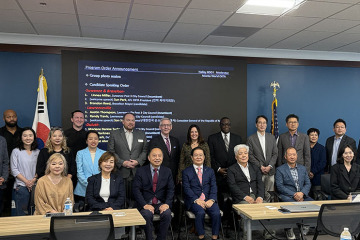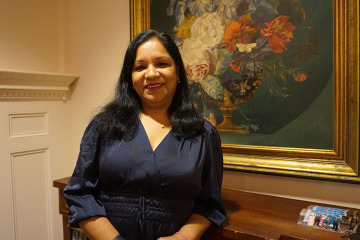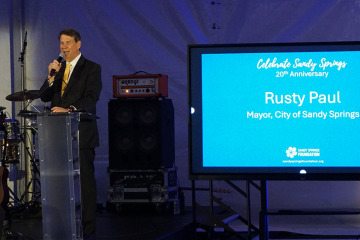By Libby Hobbs, Georgia Asian Times
After Georgia flipped blue in the 2020 presidential and senate runoff elections, the Georgia's Asian American Pacific Islanders voters claimed a title of emerging political voices. Ahead of the 2022 midterm elections, will the AAPIs community turnout be the same?
Josh Uddin and Nabliah Islam, members of Georgia’s thriving Bangladeshi community, speak on their experiences as immigrants and how that influenced their state senatorial races.
According to the Pew Research Center, Atlanta had a Bangladeshi population of about 6,000 in 2019. This made it one of the top 10 in the nation.
Uddin, hoping to represent District 48 in the State Senate, has lived in Georgia since 1987. He grew up in Bangladesh though where his father was an engineer for government offices. Uddin, however, always had a dream to receive an American education. So, he did just that.
“People always said that [America] is a land of opportunity. Once I came here, I found out that it is not an opportunity, actually it was a land of struggle,” Uddin said.
Islam, who’s hoping to represent District 7 in the Georgia State Senate, was born in Atlanta in 1989. So, she’s always been able to call Gwinnett County her home. However, she told a story of her parents' struggle when they moved to America in the 70s and 80s.

“At the time, my parents lived right off Buford highway and they were building a home in Norcross. They gave $2,000 to a developer to help build their home. That developer ran away with my parents' money and never built the home that they [were] promised,” Islam said.
Many in the Bangladeshi community are members of a working class family, something Islam could relate to growing up. She talked about her mothers job flipping burgers at Hardee’s and her fathers as a file clerk.
She felt that because she was a woman of color who grew up in a working class family, people thought she wouldn’t be as good of a candidate for jobs. Furthermore, as Muslim woman, she’s been called a terrorist and faced other forms of Islamaphobia.
But, Islam also grew up attending community events and celebrations of Bangladeshi culture. She said the community is patriotic about their roots and excited to be full participants of the American dream.
The struggle is not permanent, Udin later continued.
“Proudly, I can say that I'm running for Georgia State Senate. I must say the beauty is that you have to struggle, you have to fight, you have to earn [it]. But, once you do that, you can always do it and only in this country is it possible,” Uddin said.
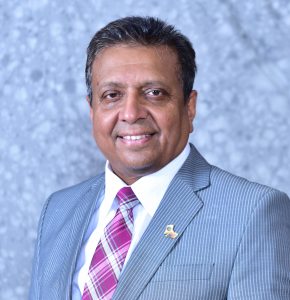
Uddin has always been proud to live in America, saying the community integrated the culture of the east and the west into one location: his home of Atlanta, Georgia.
Uddin and Islam have observed the Bangladeshi community’s increased involvement in politics. Islam originally cited “you can’t be what you can’t see” as a reason for the minimal Asian involvement. However, both mentioned that Sheikh Rahman’s election as the first immigrant to the Georgia State Senate incited a wave of change.
“[His election] really awakened the Bangladeshi community that we too could be a part of this political process that impacts our lives on a daily basis, here at home,” Islam said.
Still, Islam shared how being the person to move the needle and ensure there was a Bangladeshi voice in the halls of power came with people not understanding her mission and the constant need to prove herself.
To that, she tells young South Asian girls that they do not have to constantly prove their worth — they’re already worthy.
Largely, the concerns of the Bangladeshi community remain the same as any other Georgian. Health care, education, and other working class desires are on the ballot.
Even in the midst of struggles that Uddin and Islam face for being Bangladeshi, Muslim, or a woman, they still call Georgia their home. Both are working to rally the Bangladeshi community to the polls on Election Day, November 8, and fully assert the Asian political voice.
As for the future, Islam says this:
“This is just the beginning. I know that [in] five more years, we'll have many more folks run for office because you can't be what you can't see. I think that Sheikh Rahman running and winning his seat definitely blazed a path for me and Josh Uddin. I hope that me and Josh are blazing a path for others to come after us.”



